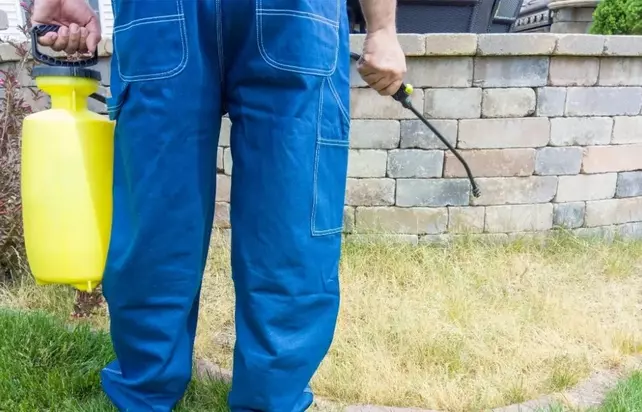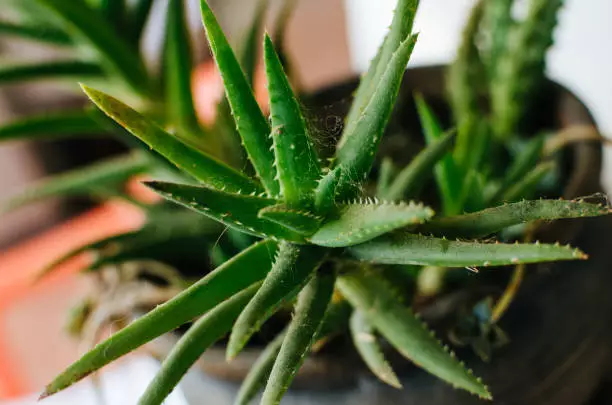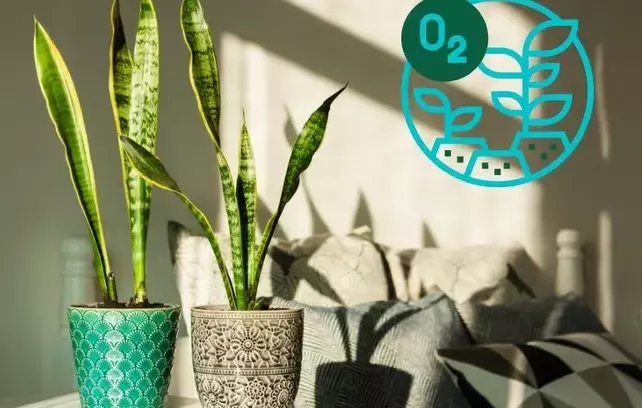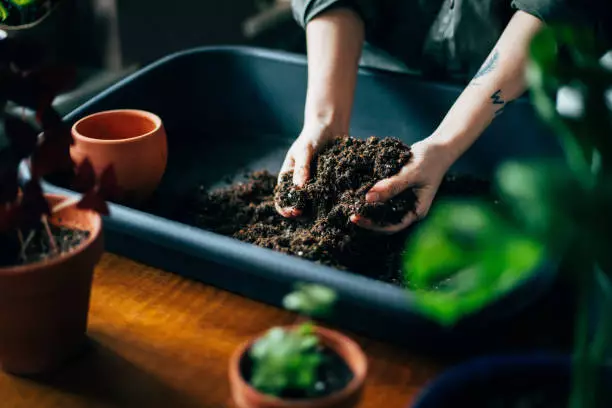Orchids are dramatic, beautiful plants that thrive in well-draining moist soils. Overwatering or under-watering causes disastrous damages. So, most gardeners ask, how often should you water your orchids to avoid overwatering or under-watering?
There is no definite number of times to water your orchids in a week. How frequently you should water them depends on the plant’s species, potting mix, type of the planting pot, season, humidity, and temperature. These factors have different impacts on the plant’s water loss, and that is why they affect the plant’s water uptake differently.
A good observation of the physical appearance of your orchids will help you in determining how often they need watering.
How often should you water orchids?
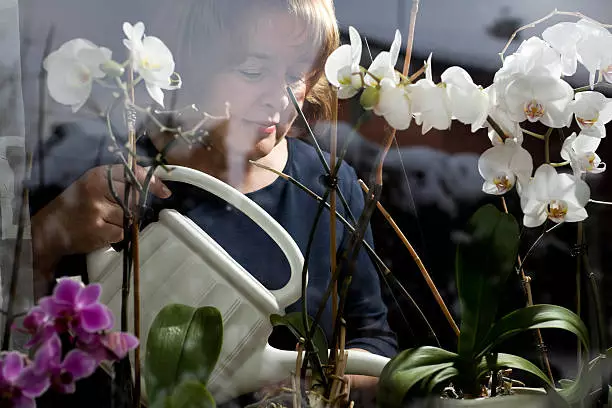
There is no absolute rule on when or how often you should water your orchids. Let your orchids dry out a bit between watering intervals. This keeps your orchids vigorously healthy and reduces the potential for fungus disease. Most orchids are watered either twice or thrice in a week after an inch or two of the topsoil dries to the touch.
The following are some of the factors that determine how often you should water your orchids:
1. Orchid species
There are various types of orchid plants, and the species determine their water requirements. There are orchids with thick bulb-like tissues that store water. The bulbs reserve enough water for the plants in case of an extended dry spell. These species of orchids do not require frequent watering.
Other species of orchids only have roots and leaves for food and water storage. These type of orchids deplete their water reserves quickly, and so, they appreciate frequent watering.
2. Season
In the summer, when days are longer than nights, your orchids will need frequent watering. This is to replace the high rates of water loss through evapotranspiration. During the growing season (summer), your orchids will need regular water like 2-3 times in a week, unlike during their resting period in the winter.
3. Potting mix
Orchids appreciate a well-draining and moisture-retaining potting medium. Potting mediums with a high water retention capacity such as sphagnum moss and coconut husks need less watering. Coarse inorganic potting mixtures need frequent watering. The large pieces of potting mix leave more air spaces that hold less water. So, depending on which potting medium you use, you will determine how often you should water your orchids.
4. Humidity
Orchids thrive well in medium to relatively high humidity. In low humidity, the potting medium and the roots dry out too fast. So, orchids in low humidity need frequent watering. Low humidity increases the rate of plant water loss through evapotranspiration. Thus, plants in the low humid area will need regular watering, unlike those in areas with medium or high humidity. You can improve the low humidity by misting your plants twice a day or using a humidifier.
5. Type of the pot
Plastic planting pots retain moisture for a more extended period. This is because water evaporates from only the top surface of the container. The bottom of the plastic planting pot remains moist as only the top part dries out. In clay planters, water evaporates from across the entire pot’s surface, so the potting mixture dries out fast. So the planting pot used will help determine how often you should water your orchids.
How do I know if my orchid needs water?
Orchids do not appreciate overwatering or either under-watering. Here are some of the factors that will help you determine if your orchids need watering:
- Dry topsoil: if an inch or two inches of the topsoil dries to the touch, then you should know that your orchids need water. You can determine using a screwdriver, a pencil, or even your fingers. If the soil test shows that the soil is moist, do not water your orchids. If it is dry, then water your plants.
- Yellowing of leaves: lack of enough water reduces the plant’s photosynthetic ability, consequently reducing chlorophyll formation. Lack of chlorophyll is what leads to chlorosis (yellowing of leaves). Thus, when the leaves tips turn yellow and then brown, it is a clear indication that your orchids need watering.
- Gray roots: gray roots are a sign of under-watered orchids. If the roots are grey, then your orchids need watering.
Do you water orchids from the top or bottom?
Top watering works well for orchids. Water your orchids when an inch or two of topsoil dries to the touch. Watering orchids involves running water through your plant and then draining it off. The best watering method to achieve deep and well soaked up soil is through top watering.
Should you mist an orchid?
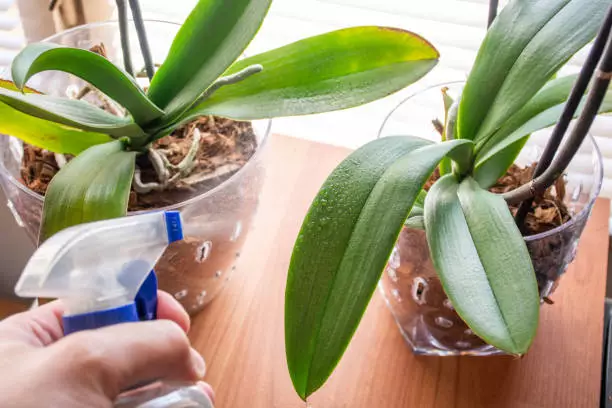
Yes, misting helps improve humidity and also pests, such as spider mites and mealybugs away. In humid conditions, water evaporates at a slower rate, which reduces unnecessary watering that might lead to waterlogging. Misting also keeps the soil moist for your orchids without making it soggy.
Spider mites and mealybugs feed on dust, and the plants stem sap. So, misting removes the dust that might attract pests and protects the plant from significant damage. If possible, mist your orchids twice a day using fresh rainwater.
How long can orchids go without water?
Orchids are tough plants and can go without water for a couple of months, like two to three. Orchids store water in the roots or pseudobulbs that the plant can survive on when left to dry out. So, if you leave your beautiful orchids unattended for two weeks, do not worry, you can still revive them. Do not miss that vacation or family get-together for fear of your orchids drying out.
While orchids can go for months without water, it is advisable not to leave them in peat moss. Peat moss is not a well-draining growing medium. Poor drainage leads to waterlogging, which causes root rot disease. Root rot disease damages healthy roots and leads to the death of your orchids.
References:
[1] St. Augustine Orchid Society: Watering Orchids During Each Season
